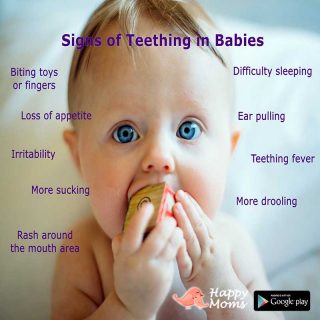
Introducing Solids to babies (for Pakistani kids)
Pakistani Culture has its norms of parenting but its always a good idea to consider proper research and advice of your doctor when dealing with babies and their food intake. The best time to start solids is after your baby turns six months, but you can also start it early only if your child shows interest in eating.
For the first six months, breast milk or formula milk is the only source of nutrition a child need. After six months one can start with solids, mostly in pureed form.
Signs that baby is ready for solids
When baby is ready to move from a liquid diet, your baby will give you clear signals. These signs include:
- Baby can keep head straight and steady
- Sits comfortably with support
- Baby can sit in feeding chair
- To continue solids, baby should be willing, to push food to the back of his mouth and swallow It, losing the excursion reflex
- Sufficient increase of weight according to age, at least weighs 13 pounds or double the birth weight (or at least 4 months old)
- Shows interest in food and opens mouth when offered food
- Can hold a finger food and put it in his /her mouth
How to Start Solids?
It’s always a good idea to start with food in liquid or pureed form, which is easy for the baby to take in and digest. You can always start with Sagu Dana made in breastmilk/formula milk in feeder (with broad nipple hole), followed by mashed banana, and pureed rice water. Give 1 to 2 teaspoons (or 1 ounce) of a food to see how your baby reacts, accepts, and digests.
Mothers should keep in mind that introducing solids would be tough for some babies, so do not overfeed your little one as they have a tiny stomach. For detailed food chart for 4 to 12 months baby, read Food chart for Pakistani Babies
Once your baby starts to eat one meal, slowly, offer the other. Give a new meal at a time to your baby, and give a gap of at least 3 to 4 days, to see how your baby’s digestive system accepts and digest the new food. Meat and vegetables usually contain more nutrients than fruits or cereals per meal but introduce these according to their age.
No evidence exists that you can delay giving safe foods that cause allergy, (including, eggs, dairy, soy, peanuts, and fish). Consult your baby’s pediatrician if you suspect your infant has an allergic reaction such as diarrhea, fever or vomiting. In starting few months, a range of items such as breast milk, formula, meat, rice, and fruits should be included in your baby’s daily diet.
Initial Foods for your baby
Every new food you introduce will be exciting for your baby. You can also add solids in any sequence, given that you have foods that are rich in iron, and the food has the right texture.
Iron-rich foods include:
- iron-fortified infant cereal
- minced meat, poultry, and fish
- mashed, cooked egg (don’t give raw or runny egg).
To these iron-rich foods, you can add other healthy foods like:
- vegetables – for example, cooked potato, carrot or green vegetables like broccoli
- fruit – for example, banana, apple, melon, peach or avocado
- grains – for example, porridge, oats, bread, roti, rice and pasta
- dairy foods – for example, yogurt and full-fat cheese, homemade butter/ghee
Quantity of Food
- Mostly mothers are worried about how much to feed their baby. When you introduce solids, just start with one spoonful and then increase the quantity gradually and avoid overfeeding the baby.
- Babies need more nutrition as they grow, so increase their intake by observing them overall. They reject food when they are full, so offer food in small chunks from time to time if you feel your baby is not eating according to the age.
- If your baby shows signs of vomiting or loose-motions after eating some new food, do not repeat that food. Wait for few more weeks and then try again.
- Babies become fussy when they are cutting teeth and rejects foods or sometimes completely stop eating. Give them a soft diet or foods that does not hurt their gums and help them relieve their pain during the teething phase.
Getting the timing right
It’s good to offer solids when you and your baby are happy and relaxed.
Your baby will also try solids, following a breastmilk or formula feed. This is because really hungry babies just want milk to relieve hunger, which they know will satisfy them. After a breastmilk or formula feed, they will still have room in their tummies to try new foods.
With time, you will know your baby is hungry, interested or full.
Signs of hunger:
- Baby feeling eager seeing you getting the food ready
- Baby leans towards you
- Baby open the mouth as you are about to feed
Signs that baby is not interested in food:
- If baby turns the head away
- If a baby loses interest or gets distracted
- Pushes the spoon away
- clamping the mouth shut
Milk with Solid Food
Your baby’s behavior will signal you if he/she is getting enough quantity of milk. With time you will know your baby needs more frequent feeds or less, as the quantity of solid food increases. Around nine months babies have normally gained the capacity to chew and swallow and indicate when they need feed, before or after the solid food.
What Food to introduce first
There is no certain rule as to what to introduce as a first food to your baby. Always start with a small amount of soft liquid foods that can be prepared with breastmilk/formula milk. It’s a good idea to follow a weekly chart.

Tips to feed solids
Babies are born with a preference for sweets, so you don’t have to worry about introducing sweet or savory foods in any particular order, you can offer sweet and savory in any order.
- Feed cereal and purees with a spoon only to avoid choking hazard, don’t add cereal to bottle unless your baby’s doctor asks.
- Encourage baby to eat every type of food
- Give time to your baby for new food, if the baby doesn’t show interest in a particular food, do not force and try again in a few weeks.
- Be careful for the choking hazards
- Look for the signs of constipation and discuss with your doctor about any changes. Although baby’ s stool may change color or odor with change in their diet, which is normal
Changes to expect after solids
Once the infant begins taking solid food, the stool becomes smoother, solid and may change color. It will have a much stronger odor because of the added sugars and fats. The stool could become deep-green in color by peas and other green vegetables; beets will turn it red. The stool may contain undigested pieces of food, especially peas or maize hulls, the skin of tomatoes or other vegetables when the food is not strained. ⠀The digestive system of an infant is immature and needs time before these new foods can be fully processed. ⠀
Introducing finger foods and juice
You should give your baby finger food to help her learn to feed themselves until your kid sits down and puts hands or other things in their mouth. Ensure anything you give to your baby is tender, easy to swallow and cut into small pieces to prevent choking. For starters, small banana bites, wafer cookies or crackers, scrambled eggs, well-cooked pasta, small pieces of chicken and well-cooked, sliced peas or potatoes. Avoid giving your baby processed foods
Use a blender, food processor or fork to mash food for baby. Fresh food should be well cooked without any salt or seasoning, but with time introduce sweet and salty seasoning in baby food to give them taste. Try giving freshly made food to your baby, but to save time or in other cases, refrigerate any food left and can be given to baby later.
Babies up to 12 months should not be offered juice. After 12 months of age (up to 3 years), only 100% fruit juice should be given around 4 ounces a day.
Things to avoid:
- Avoid giving any food that requires chewing at this age
- Avoid giving foods that can cause choking hazards
Food allergy
An allergic reaction in babies can occur due to several reasons. It usually takes place when the body has an unfavorable reaction to a usually harmless material e.g., a soap, or certain food. Babies have sensitive skin and body, which makes them more likely to get a reaction than adults. Knowing the reason for the allergic reaction can help parents to avoid and treat it in the future.
When a body is allergic to a certain food or product, it reacts as if it was something dangerous for the body. It starts producing the antibodies to battle the food allergen, through the body’s immune system, which helps prevent infection and disease. Read Food allergies in babies for detailed information.
Mothers are the best judge so never ignore your instincts about your babies. How and when to introduce what, mother knows the best.
Read more on Food chart for Pakistani Babies
This article is for informational purposes only, and is not meant to offer medical advice



